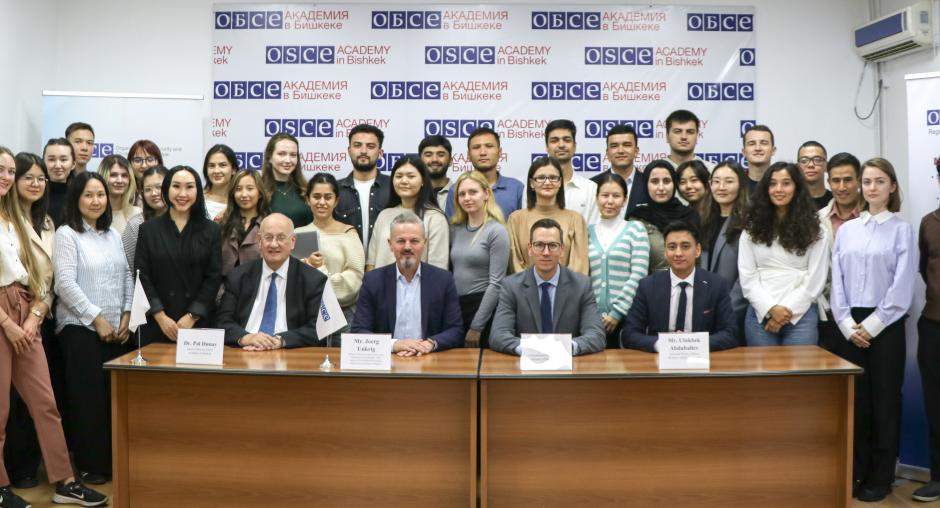Youth crime prevention in focus at guest lecture for OSCE Academy students

On 30 September, 38 students from the OSCE Academy in Bishkek participated in a guest lecture dedicated to preventing youth from engaging in criminal and corrupt activities. The event was held in Bishkek, Kyrgyzstan, and was facilitated by the OSCE Transnational Threats Department and the Office of the Co-ordinator of OSCE Economic and Environmental Activities.
The event gathered students from Central Asia and Afghanistan enrolled in the OSCE Academy Master Programmes in Human Rights and Sustainability, Politics and Security, as well as in the Bachelor Programme in Economics. Through case studies and group discussions, students learned about the OSCE’s comprehensive approach to youth crime prevention and addressing the root causes leading to criminal activity. The lecture also explored international good practices for preventing at-risk youth from engaging in criminal activities, with a focus on early intervention and multi-stakeholder co-operation and support, delivered by the prevention initiative “Kurve Kriegen” of the Ministry of Interior of North-Rhine Westphalia in Germany.
“It is crucial for students to understand the profound impact of youth crime on security and economic development across Central Asia and beyond,” said Dr. Pal Dunay, Interim Director of the OSCE Academy in Bishkek. ”This interactive lecture served as a thought-provoking platform for students to learn about comprehensive methods to prevent youth crime.”
The lecture provided evidence-based insight into why and how preventive strategies are more effective than repression when addressing security challenges in the Central Asian region and beyond. The insights gained will also serve as a helpful resource for students drafting their Master's theses.
The guest lecture was organized as part of the multi-year extra-budgetary project “Enhancing youth crime and drug use prevention through education on legality and awareness campaigns addressing threats of organized crime and corruption” funded by Germany. Further donors supporting this project are Andorra, Finland, Italy, Norway and Poland.
